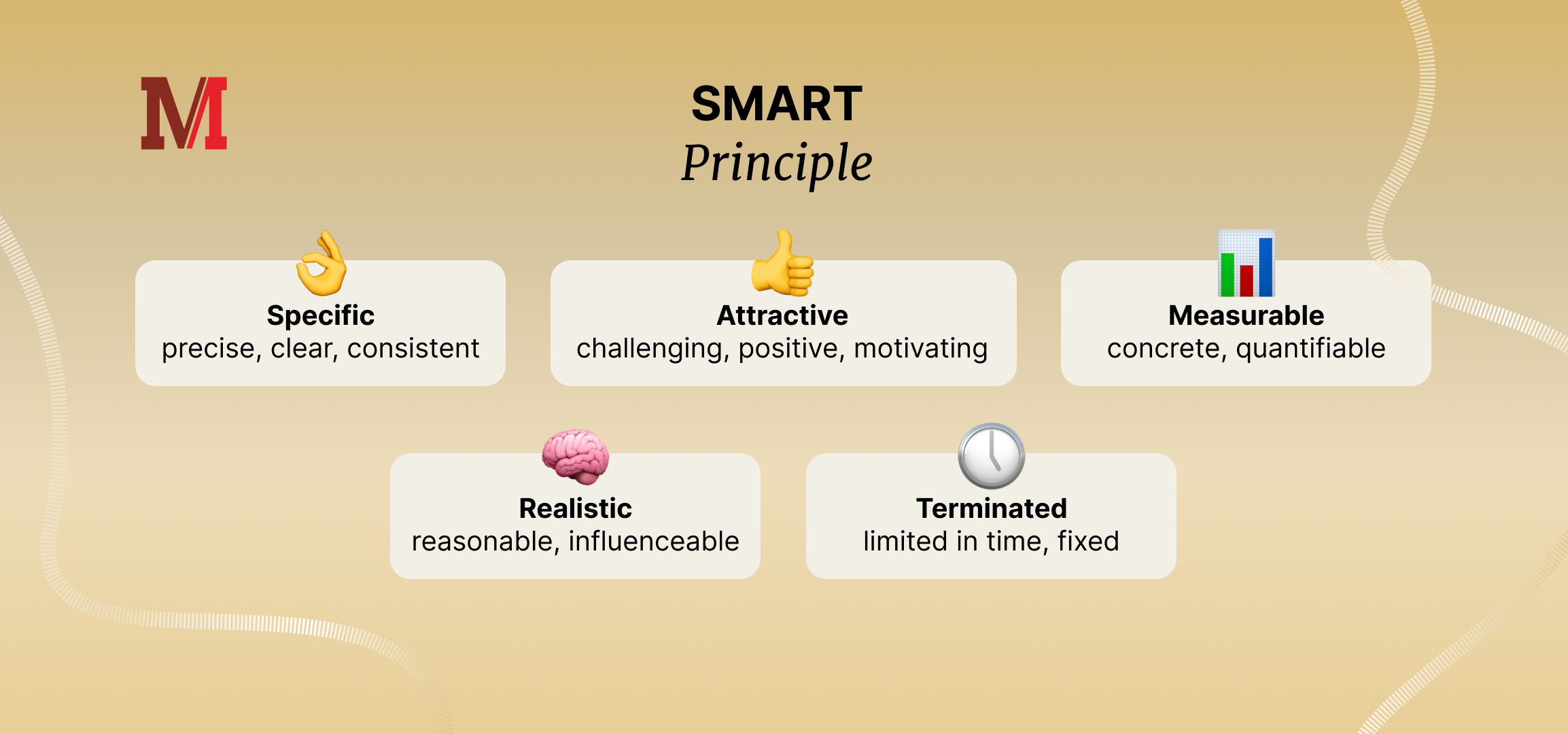
Everyone knows this feeling: You actually should go to the gym again and your apartment needs a spring cleaning. Plus, there's work where you want to give your best. But as so often, motivation is lacking and things are left undone.
There can be many different causes for a lack of motivation - and also many solutions. That's exactly what we want to summarize and we brought in motivation coach Sabine Hering to help us out.
Read on to learn the following:
-
What motivates me?
-
Tips for increasing motivation
-
External influences
1. What motivates me?
Identifying personal motivational factors is an important step in increasing your own motivation. Everyone has individual motivational factors that drive and motivate them. Some common factors are recognition, achievement, personal growth, and autonomy. When you know what drives you, you can work towards achieving these factors and thus increase your own motivation.
Equally important are your own values and goals. These determine what is important to you and what you want to achieve, and you can work towards them more purposefully.
Self-reflection plays a crucial role
To identify your own motivational factors, values, and goals, it can be helpful to ask yourself some self-reflective questions.
For example:
-
What motivates me the most?
-
What goals do I want to achieve in my life?
-
What obstacles stand in the way of my goals?
-
How do I deal with challenges and setbacks?
-
What habits and routines do I have that support or hinder me?
-
How do I spend my time and what activities make me happy?
Additionally, it can be helpful to take time for self-reflection on a regular basis. Consider what is going well and what you can improve. Ask yourself if you are still on the right track and continue to pursue your goals and values. This will allow you to work specifically on your personal development.

2. Tips for Increasing Motivation
Now let's look at some of the ways you can increase your own motivation.
Set Clear Goals
If you have a clear goal in mind, you can work specifically towards it and benefit from a sense of direction and purpose. It also helps to measure and monitor progress so that you can constantly adjust your strategy.
Motivational coach Sabine Hering recommends the SMART principle:
"The SMART principle is a method for setting specific goals. SMART stands for specific, measurable, attractive, realistic and scheduled. By considering these criteria when formulating goals, you can ensure that they are clear and realistic, and therefore easier to achieve."
An example of an application of the SMART principle would be:
Specific: I want to lose 10 kilograms within six months.
Measurable: I will measure my weight each week and note my progress.
Attractive: I want to feel fit and healthy and increase my self-confidence.
Realistic: I will change my diet and exercise regularly.
Terminated: I will achieve my goal by December 31.
Alternatively, you can try visualization techniques. This involves imagining how you will achieve your goal and how it will feel to be successful. An example of a visualization technique application would be:
"I visualize myself achieving my goal by exercising regularly and eating healthy. I visualize myself feeling fit and energetic and how my clothes fit better. I see myself feeling confident and happy, and I look forward to the positive changes I will achieve. Through this visualization, I increase my motivation and work specifically towards my goal."
Self-Motivation
Reward systems are an effective way to motivate yourself. A reward system consists of a goal that you want to achieve and a reward that you give yourself when you achieve that goal. The reward can be anything that gives you pleasure, whether it's a delicious meal, a new piece of clothing, or an activity you enjoy doing. It is important that the reward is attractive to oneself so that one really feels motivated to achieve the goal.
To use a reward system, it is helpful to first set a specific goal. This goal should be challenging, but also realistic. One should be clear about what one wants to achieve and why it is important to achieve this goal. Then you can think about what reward you want to give yourself when you reach the goal.
Here's an example:
"If I exercise twice a week this month, I'll treat myself to an extended movie night."

Positive self-talk is another way to motivate yourself. With the right thoughts and phrases, we can encourage ourselves, push ourselves, and believe in ourselves.
Are your thoughts more negative? Then try consciously rephrasing them.
It might look like this:
This workout is too hard for me. → This challenge makes me stronger.
I'm not losing enough weight. → I am losing weight.
I can't do this. → I'm doing the best I can.
Talking to yourself - Isn't that embarrassing?
Sabine Hering has this to say:
"It's perfectly normal to sometimes have negative thoughts or criticize ourselves, but we should be aware that these thoughts don't get us anywhere and can only demotivate us. Positive self-talk is a way to steer our thoughts in a productive direction. Instead of focusing on our faults and weaknesses, we should be aware of what we do well and what our strengths are.
It is important to understand that it is not embarrassing to have positive self-talk. On the contrary, it shows that we care about our inner attitude and are making an effort to develop our potential. That's why I always tell my clients, "Everyone talks to themselves anyway. Why not make use of that?"
Dealing With Setbacks
People often set goals and have ambitions, but it is not always easy to achieve them. Setbacks and failures often occur, which can reduce our motivation. But how can we maintain and even increase our motivation when we encounter obstacles? One way is to learn how to better deal with setbacks.
Sabine Hering uses the following 3-step program:
Step 1: Acceptance of mistakes
We need to realize that it is normal to make mistakes and that we should not be discouraged by them. Mistakes are part of the learning process and can help us better understand our goals and improve our skills.
Step 2: Error analysis
We need to understand what went wrong and what we can do differently to be successful in the future. A thorough analysis can help us adjust our strategy and achieve our goals more effectively.
Step 3: Focus on progress and success
Focus on the progress and successes you have made despite setbacks. It is important to recognize our accomplishments and remind ourselves that we are on the right track. By focusing on our progress, we can motivate ourselves and keep our eyes on the big picture.
Sabine Hering: "We have to understand that failures and mistakes are inevitable and that they are part of the learning process. If we see setbacks as opportunities to learn from our mistakes, we can develop our potential and achieve our goals."
3. External Influences
Our motivation is influenced by many factors, including the social environment, working conditions, and professional support.
A. Importance of the Social Environment
The social environment plays an important role in a person's motivation. Family, friends, co-workers, and supervisors can all influence whether or not a person is motivated. If your social environment is supportive and positive, it can help you feel better and achieve your goals more easily. On the other hand, a social environment that is critical or demotivating can cause a person to lose motivation or not develop it at all.
B. Motivating Working Conditions
Working conditions can also have a major impact on motivation. Working in a positive and supportive work environment where you can use and develop your skills and talents will lead to increased motivation and job satisfaction. On the other hand, a work environment that is not supportive or where you feel that their work is not valued can cause them to become demotivated and dissatisfied.
C. Professional Support
There are several types of professional support that can help increase motivation. Attending training or workshops. These events can help develop skills and knowledge needed to achieve goals. In addition, they often provide opportunities for networking and sharing experiences with others facing similar challenges.
You can also consult a coach or consultant to help you identify your goals and problems and develop strategies.
Sabine Hering explains how she works as a motivational coach:
"I help my clients develop a positive attitude and healthy self-confidence. I place great emphasis on my clients' individual needs and goals and encourage them to recognize and use their own resources and abilities to achieve their goals. I also offer practical tips and tools to help them on their journey to increasing motivation.
Ultimately, motivational enhancement is about people realizing that they have the power to change their lives and achieve their goals. As a motivational coach, I help them harness that power and reach their full potential."

Conclusion
Motivation plays an important role in living a fulfilling and successful life. Internal and external factors determine how you approach your tasks on a daily basis.
If you suffer from motivation issues, the following tips can help:
-
Set clear and realistic goals that motivate you.
-
Recognize and use your own strengths and talents to achieve your goals.
-
Accept setbacks and use them as learning opportunities.
-
Surround yourself with a positive and supportive social environment.
-
Create motivating working conditions.
-
Use professional support when you need it.
In summary, motivation is an important force in life that drives us to achieve our goals and realize our dreams. By applying the tips and insights we have mentioned, everyone can increase their motivation and lead a more fulfilling and successful life.
Finally, a word from Sabine Hering:
"Remember that every success, no matter how small, is a step in the right direction. Every setback is a learning opportunity that you can use to grow and become stronger. Stick to your goals and be persistent.
And most importantly, be good to yourself. Accept your flaws and weaknesses and celebrate your successes and strengths.
I believe in you and your ability to increase your motivation and achieve your dreams. Take the first step and start achieving your goals today."
How did you like the article?
With your feedback, we can improve our content.
❤️ Very interesting! - ☺️ Okay. - ☹️ Not interesting.






























